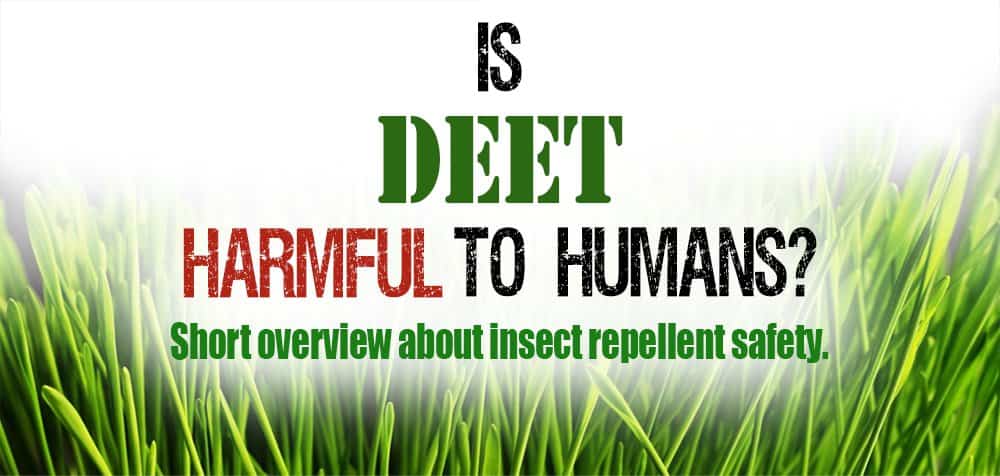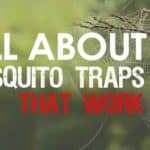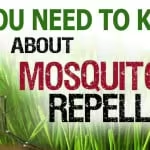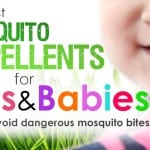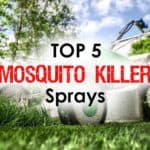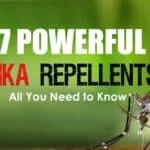A short overview regarding the safety of bug repellents.
Everyone who smelled the chemical scent of mosquito repellents with DEET might have come up with concerns about the dangers of this ingredient.
I have to admit that I was worried as well. That’s why I carried out some research on this topic and found a lot of evidence speaking in favor of this mosquito repellent.
But let’s start with the unsettling facts first.
DEET dangers
Since it has been invented in the 1950s DEET has been suspected to cause side effects like dizziness, skin irritations and few users have even experienced severe allergic reactions1.
That sounds rather unpleasant and concerns a lot of people: For example in the years 1993–97 alone over 20,000 calls relating to DEET exposure were placed to the American Poison Control Centre.

A scientific study reviewed all of those cases and concluded that an overwhelming majority had no symptoms related to DEET. The rest suffered from minor side effects, mostly because they seemed to not use it correctly.
The study concluded that ‘There was no clear relationship between DEET concentration and presence or severity of clinical effects’2. Furthermore they argue that the general health risk due to DEET is quite low.
So it seems while a few people can experience allergic reactions, DEET mostly suffers from a perception problem, as this article concludes. Something smelling that awful cannot be healthy, right? I’m sure you are with me here.
However the truth is that numerous scientific studies have come to the conclusion that DEET bears some danger, but overall the risk in regard to health problems is very low. Even pregnant women suffer from no negative reactions3.
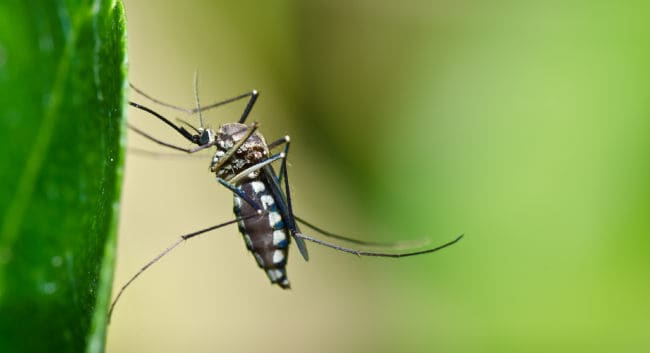
Compared to over 200 million applications worldwide every year there are not many negative cases linked to DEET. It is widely considered the best bug repellent that we currently have4. EPA constantly reviews the scientific recommendations regarding it and concludes that it is safe to use5.
After reading a lot of scientific studies, numerous websites and many statistics I’m way less concerned about DEET. It seems that if applied correctly it is not as dangerous as its chemical smell makes you think.
If there are some (low) risks, why use any of this stuff at all?
It’s easy to demonize DEET because of the negative effects it can have. That is shortsighted though because the chemical protects effectively from health hazards carried by the deadliest animal on this planet: mosquitoes.
They are not only annoying us with itchy bites but also carry diseases like West Nile, Malaria and Zika.
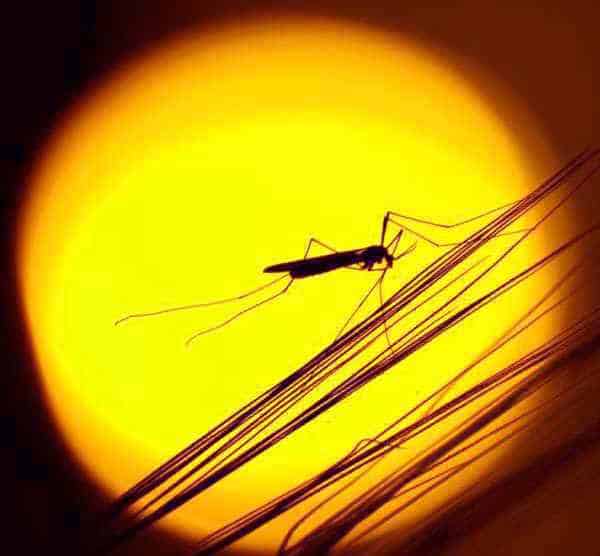
Compared to the millions of deaths they bring upon humanity each year the side effects of DEET suddenly seem forgivable. If you weigh the possible harmful effects of an insect repellent against threatening diseases the choice becomes easier. At least for me it does.
How to minimize the risk of DEET
There are a number of additional points to keep in mind. If you buy a new spray better read the product label thoroughly.
Follow the instructions and keep in mind that DEET can disintegrate synthetic clothing.
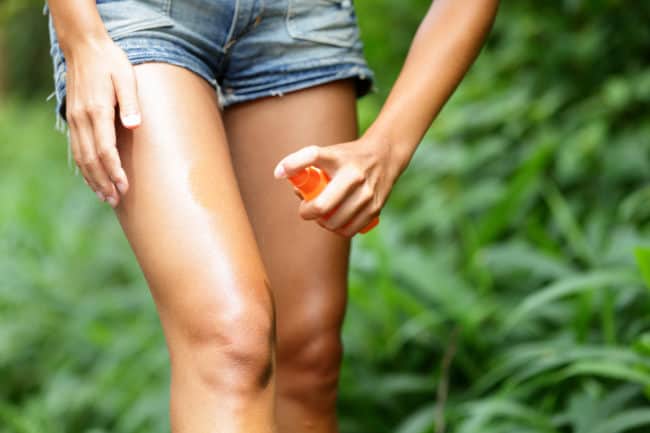
The recommended %-amount of DEET varies, most sources seem to prefer anything between 20-30%.
If you are interested in more information, I covered this topic in my extensive mosquito repellent guide.
That said you should follow some rules if you want to use DEET safely. EPA and CDC give some great advice on how to apply it. It’s best to
- not use it on irritated skin, eyes and mouth or wounds.
- It can be used on kids: but spare their hands and sensitive areas in the face.
- Cover all of your exposed skin but avoid over-application
- If bugs begin to bite you, reapply it.
If you experience any negative side effects wash your treated skin and contact a physician or the National Poison Control Center (1-800-222-1222). It’s best to keep the used bottle with you when visiting a doctor.
Alternatives to DEET
If you’re still worried (although the scientific evidence favors DEET) there are some viable alternatives to protect yourself from mosquitoes.
There are currently three different repellents registered with the EPA who all work against but bites.
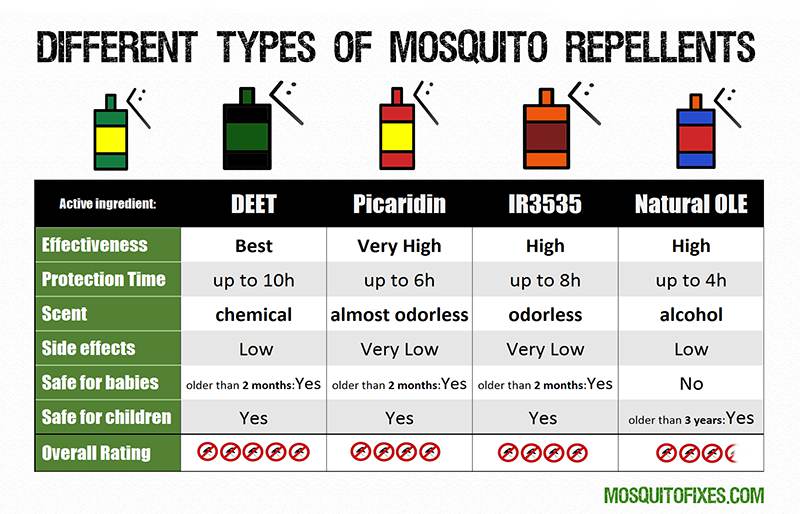
Picaridin and IR3535 are two synthetic ingredients which work comparable to DEET and might cause less side effects with certain people (take a closer look at source 4). While DEET is sold in higher amounts these products are available in lower concentrations.
The only natural alternative are products with Oil of lemon eucalyptus.
- They usually last a bit shorter and are less reliable than synthetic ones, but can provide protection for about 2-3 hours.
- Oil of lemon eucalyptus, while natural, is not recommended for children under 3 years old.
- It often contains a lot of alcohol and irritates the skin from my experience. How you can deal with it depends on your individual health and the formation of ingredients.
In case you buy a mosquito repellent for the first time I would recommend that you start with a DEET-based one. They have the strongest evidence and are available in many different concentrations.
You can read the mosquito spray guide to learn more about the best products available.
For everyone who is short in time I list the best DEET-free mosquito repellents here:
Sawyer SP544 Premium
This spray with Picaridin is a great replacement for lower concentrated repellents with DEET.

- With 20% Picaridin – no DEET
- Less greasy and not so oily
- Smells very okay
Last update on 2025-09-17 / Affiliate links / Images from Amazon Product Advertising API
It lasts long and uses the scientifically-proven Picaridin. It seems to protect comparable to DEET while smelling nicer and leaving a less oily texture on the skin.
Coleman Skin Smart DEET-Free Spray
This repellent is a DEET-free alternative with long lasting protection from mosquitoes.
No products found.
Due to the active ingredient IR3535 this spray is almost odorless and dries faster than many other repellents. In comparison to DEET this spray needs to be applied more carefully. If you miss a spot the mosquitoes will find it.
One big advantage is the long-lasting protection though. From my experience the little bloodsuckers leave you alone for about eight hours.
Repel Lemon Eucalyptus
The only non-synthetic (natural) mosquito repellent approved by the EPA is Oil of Lemon Eucalyptus.

- Viable alternative to low %-DEET
- Suitable for all fabrics
- For short and medium trips
Last update on 2025-09-17 / Affiliate links / Images from Amazon Product Advertising API
This repellent relies on natural ingredients – they can work, but it’s not guaranteed for everyone. Give it a try to see if it works for you.
Summary
I hope this overview gave you some insights on the safety issues with DEET. According to the scientific evidence some users can experience side effects but the overwhelming majority of people will be fine.
Feel free to try out the alternatives but for high risk vectors repellents with DEET are still my favorite pick. From my experience they tend to last a bit longer when I’m out in the marshes.
Sources:
- Miller JD. Anaphylaxis associated with insect repellent. N Engl J Med. 1982;307:1341–1342. http://www.ncbi.nlm.nih.gov/pubmed/7133075
- Bell J, Veltri J, Page B. Human exposures to N, N-diethyl-m-toluamide insect repellents reported to the American Association of Poison Control Centers 1993–1997. Int J Toxicol. 2002;21:341–352. http://www.ncbi.nlm.nih.gov/pubmed/12396679
- McGready R, Hamilton KA, Simpson JA, Cho T, Luxemburger C, Edwards R, Looareesuwan S, White NJ, Nosten F, Lindsay SW. Safety of the insect repellent N, N-diethyl-m-toluamide (DEET) in pregnancy. Am J Trop Med Hyg. 2001;65:285–289. http://www.ncbi.nlm.nih.gov/pubmed/11693870?dopt=Abstract&holding=f1000,f1000m,isrctn
- Chen-Hussey V et al.; licensee BioMed Central Ltd. 2014. Assessment of methods used to determine the safety of the topical insect repellent N,N-diethyl-m-toluamide (DEET), Parasites & Vectors 2014, 7:173. http://www.ncbi.nlm.nih.gov/pmc/articles/PMC4041896/
- https://www.epa.gov/insect-repellents/deet#safety
Hi! My name is Mark and I’m an outdoor freak.
Visiting many exotic places around the world allowed me to gain some knowledge about effective mosquito control. That’s why I decided to start this site and give you in-depth reviews regarding the best repellents and traps.
And yes, you may call me Mosquito Mark.
